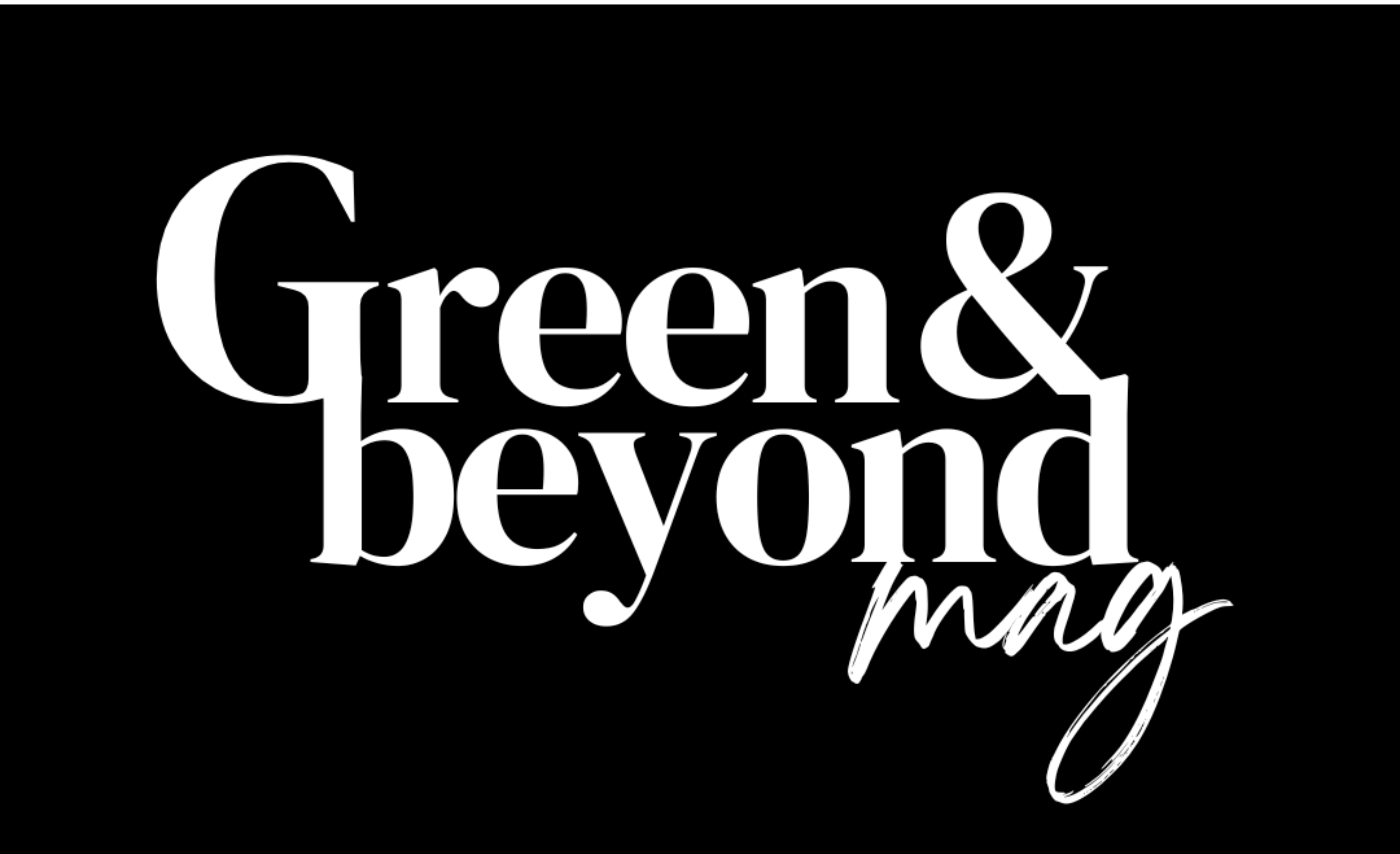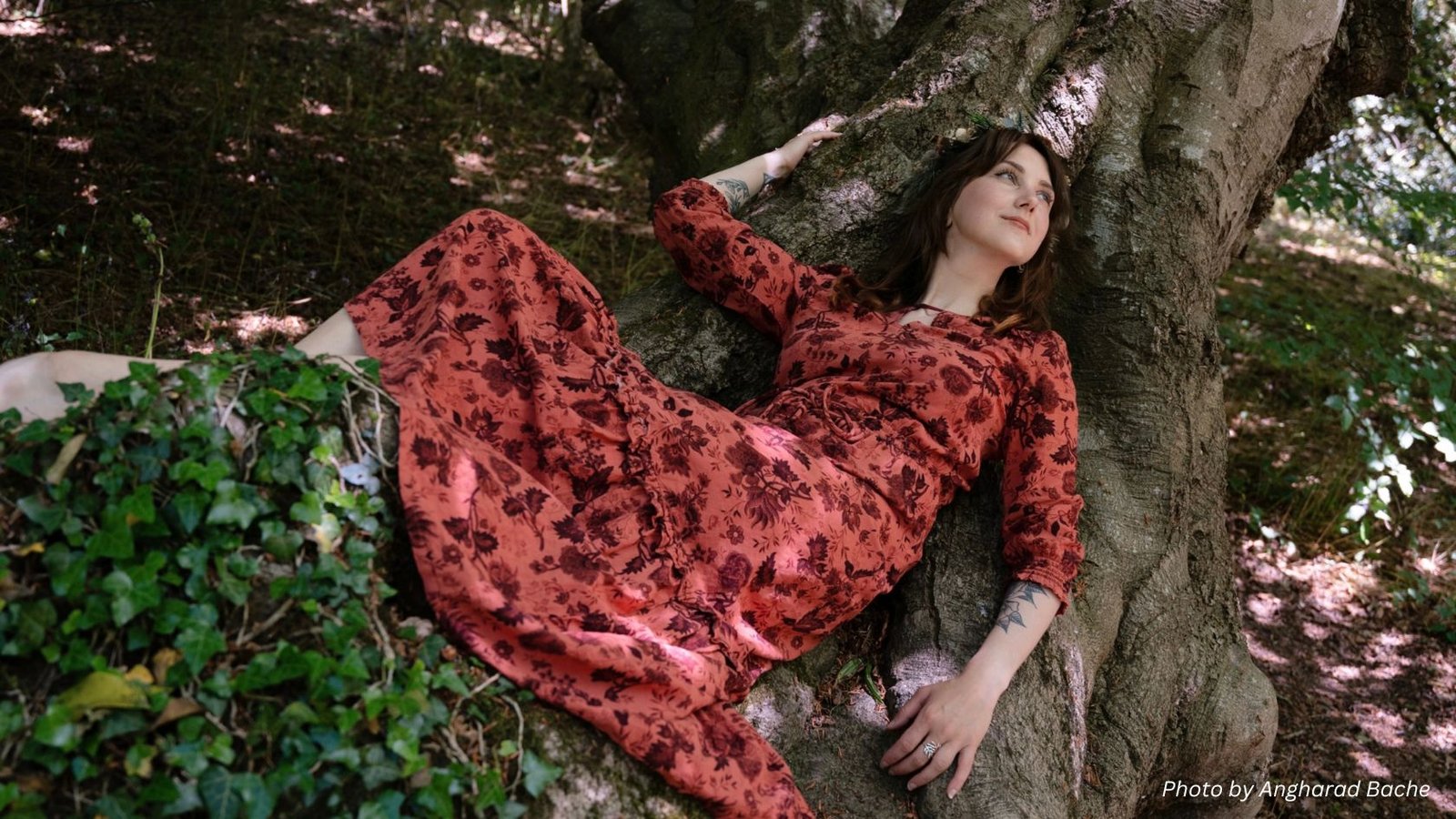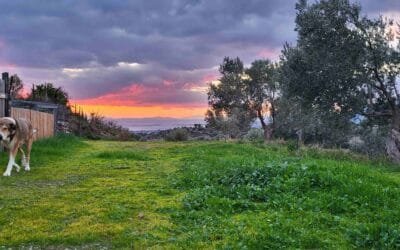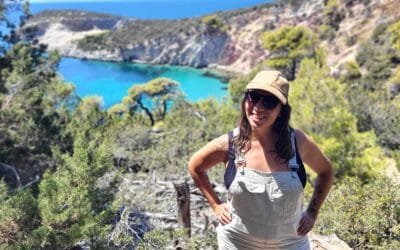Imagine a life dedicated to both environmental activism and personal growth. This is the world of Jessica Kleczka, a climate psychologist, activist, and communicator who believes in the power of collective action while navigating the complexities of individual well-being in the face of the climate crisis. Jessica’s journey, from her early connection with nature in a bustling city with limited green spaces to her current work as a climate communicator and climate activist, is a testament to the multifaceted ways we can engage with environmental issues.
Driven by a passion for both environmental justice and mental health, Jessica has carved a unique path in the field of climate activism. Her work delves into the intersection of psychology and environmentalism, exploring how our environment shapes our mental well-being and vice versa. In this insightful interview, she sheds light on the challenges and opportunities of communicating climate issues effectively, emphasizing the importance of fostering hope and agency amidst the complexities of the crisis. Jessica also shares her personal experiences with burnout and her ongoing commitment to sustainable living, offering practical tips, and strategies by embracing imperfect environmentalism for individuals seeking to make a positive impact.

Join us as we delve into Jessica’s unique perspective and discover how you too can contribute to a more sustainable future. As Jessica aptly reminds us, “We need millions of imperfect environmentalists rather than a handful of perfect ones.”
To start, could you share a bit about your journey – what moment sparked your personal passion for climate activism or environmentalism?
Growing up, I wasn’t really aware of the climate crisis – my parents were Polish immigrants in Germany and we lived in a tower block at the edge of a very polluted city. I did however have an intimate connection with the natural world – although my area was quite deprived, our housing estate was surrounded by wetlands, and I spent many happy hours playing outside with my friends. I used to collect many nature memorabilia – differently sized cones, shells, pressed leaves, and the like. And whenever we returned to Poland, we would spend weeks at a time in a cabin in the woods, foraging buckets of mushrooms and blueberries.
In my early teens, the wetlands around our home started to be drained and developed into housing for the growing working population – I lost what little access to nature I had, and I believe that this contributed to the many mental health struggles I experienced as a teenager. Most of my youth was too turbulent to even think about bigger issues like climate change – that started when I moved to London to go to university. I felt a lot of anger about the state of the world back then. I had gone vegan in my early twenties, mostly for health reasons, but it sent me on a path to caring about the bigger picture too. In 2019, I joined my local climate group and became a full-time campaigner alongside my university degree. It was a wild time!
Your work sits at the intersection of psychology and environmentalism. How do you see these two realms influencing each other, and what led you to bridge these disciplines?
Our mental health has everything to do with our environment, and vice versa. The state of our environment has a lot to do with how we function psychologically.
I originally planned to become a clinical psychologist after my degree, but decided against it when I learned how mental health care functions in our society. We’re quick to point to faults within the individual or their relationships with loved ones, but often neglect what’s around them. Do they live in a polluted neighbourhood? Is their housing situation secure? Can they buy fresh healthy produce? Do they have access to green spaces nearby? All of those things significantly impact our mental wellbeing, but are often forgotten about in mental health practice. As someone who grew up working class and lives with a disability, I’m particularly passionate about access to nature and how marginalised communities in particular often don’t have green spaces near them.

There is also growing awareness that our disconnect from the natural world – starting with the early industrial period – is a major contributor to the environmental crises we’re dealing with now. Add to the mix that we haven’t evolved to sense excess carbon dioxide, and therefore don’t intuitively perceive it as a threat, and you’ve got yourself an issue that feels psychologically distant to many of us. Of course, many people are now waking up to the reality of the climate crisis, as it’s now happening on most people’s doorsteps – wherever you are in the world.
But the simple reason I’m doing the work I do today is because I didn’t want my job to compromise my advocacy work – I had to connect them somehow. After finishing my Psychology degree, I did another degree in climate change, and through a lot of introspection, I arrived at climate psychology and communication science. I owe a lot to my supervisors at university who gave me a lot of freedom to explore different aspects of these issues, and I absolutely love the work I get to do now.
One of your key areas is helping individuals overcome climate anxiety. How do you approach this challenge, and what advice do you have for those grappling with the emotional toll of the climate crisis?
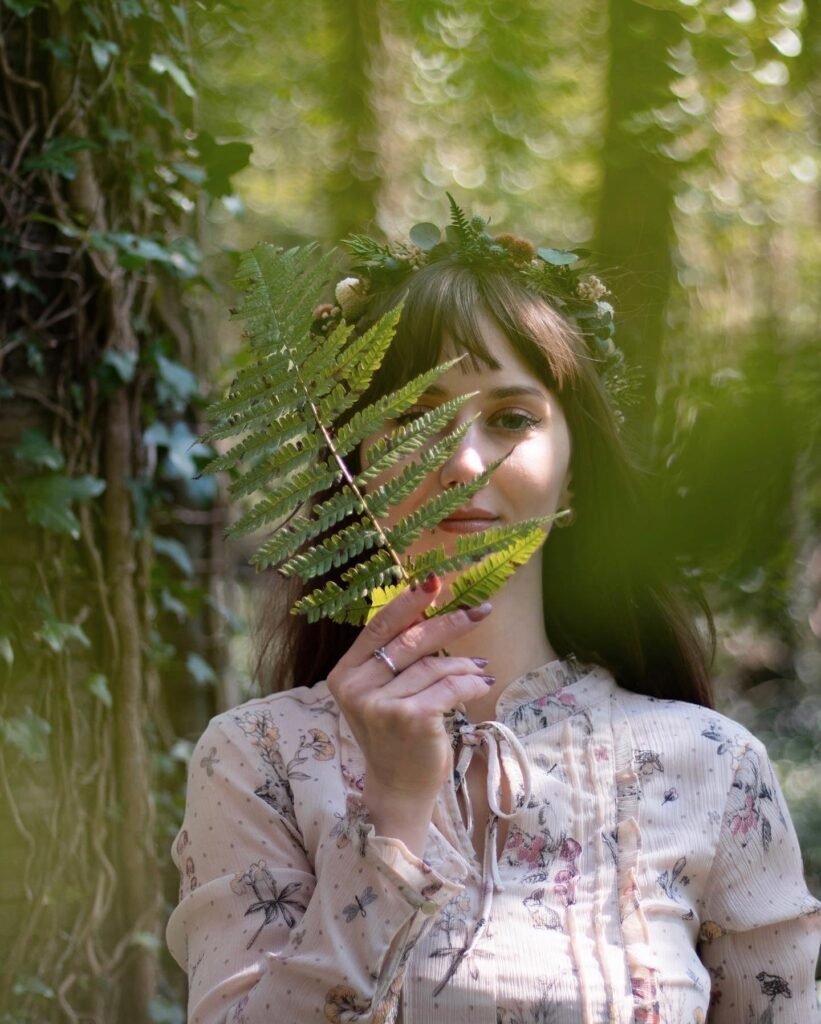
The most important thing to know is that if you experience climate anxiety, there is nothing wrong with you. Psychologists don’t see climate anxiety as a mental illness – it’s a normal and even healthy response to the unhealthy state of our world and the ecosystems we so fundamentally rely on. But there is some alarming data – one study by the University of Bath found that almost half of young people feel that the climate crisis is affecting their everyday life and functioning. And once an issue starts affecting us on that level, there is a risk of it developing into a serious mental health issue.
I’m not a mental health professional myself as I went down the research route, so my work has been focusing on finding out more about how young people are affected by the climate crisis. I published a paper with Imperial College looking at young people’s experiences of climate anxiety around the world, and last year I worked on research examining climate anxiety and understanding in early childhood. There is still some work to be done to understand how we can best support young people, but one thing is clear – a lot of our anxiety is caused by government inaction rather than personal failure, and so climate action is the best way we can stem suffering caused by climate anxiety.

A lot of this is also connected to how we communicate – we see a lot of doom and gloom in the media, and while we are in a dire situation, this kind of messaging will leave people desensitised over time, or lead to news avoidance altogether. It’s crucial that we find a balance between conveying the urgency of the situation, whilst communicating reasons to have hope and actions people can take in their own lives and communities.
Effective communication is a crucial aspect of your work. How can we employ more creative and impactful ways to communicate climate issues, especially to diverse audiences?
Early in my career when I worked in climate policy, our team used to create a daily climate news roundup with the headlines and team-specific topics like nature, waste or energy. What I realised during this time was that there is a lot of good stuff happening, but we rarely see it in main news outlets. The reason for this is that often small steps are not sensational enough, although over time, they help build momentum and the foundations for wider system-level change. But our brains have also evolved to pay more attention to negative information as a survival mechanism – media outlets know this and relentlessly exploit this information for clicks. But ultimately, while fear-based messaging gets our attention, sustained negative messaging on climate change will make most people feel overwhelmed and powerless. This is why I started the “Positive Climate News” series on Instagram in collaboration with Earthly Education, reporting on all those small wins we often never hear about. The series has reached millions of people around the world and inspired thousands to take action or keep going.
Last year, I was the Director of Research on “A New Era In Climate Communication” – a huge resource that is now freely available online. It reinforced what I already believed to be true – that hope is a crucial factor in inspiring action. But it also hugely depends on the audience. If someone doesn’t know a huge amount about climate change, they probably need to feel a little bit scared before being exposed to solutions-focused narratives – but I believe that the reason we see so much emphasis on hope and solution these days is because climate change has risen to be a top issue of concern around the world in the last five years. Most people are aware of it, and are at least a little bit concerned – so it becomes crucial to communicate that it’s not too late to avert the worst impacts, and that all the solutions we need are already out there – but what we need is action, all the way from the individual to the systemic level.
Your research delves into the mental health impacts of the climate crisis. Could you share some insights from your work, and what coping strategies do you find most effective?
Mental health is a big topic in the climate community. Every day we’re dealing with something that’s, frankly, quite depressing – but it’s also an incredibly exciting time to be alive.
Activist burnout is one of the biggest risks I encounter – I experienced it myself several times, and every time I had to take a big step back and allow myself to heal. Many of us are so passionate about our planet and its people that we take on way too much, and forget to look after ourselves in the process. Part of my work consists of training activists in how to recognise symptoms of burnout and take steps to ensure we stay healthy while fighting for a better future.
Some of the things I do in my life to avoid burnout are – spending at least an hour a day in nature with no distractions, setting firm work boundaries, and balancing the kind of work I do to ensure it feels meaningful and fulfilling. A big part of overcoming burnout was also to reconnect with the things that bring me joy and make time for them! Every morning after I wake up, I keep my phone switched off for a bit while I read a book and witness the world around me.
What role do you think climate storytelling can play in amplifying the voices and experiences of those most impacted by the crisis?
Stories are one of the fundamental ways humans have learned to connect and share information. Studies show that our brains retain a lot more information if it is presented in a story format, and they’re also an excellent way of communicating radical ideas whilst circumnavigating political polarisation. After my work as a climate communications researcher, I decided to take a step back from academia – both to recover from burn-out and put my learnings into practice. So this year I’m focusing primarily on my campaigning and creative work, utilising storytelling techniques to engage more people with environmental issues and getting them involved in building a better future.
At the moment, my partner and I are working on “Road to the Future” – a project documenting sustainable projects around Europe as a way to give back to the communities we visit in our home on wheels. The series will be hosted on @earthly.explore on Instagram and cover Spain, France, and the UK to start – if all goes well, we will continue in Scandinavia and Eastern Europe later this year! The vision behind this project is to spotlight environmental issues around the continent and what everyday people are doing to fix them, to inspire the next generation of change-makers. Climate action can look like many different things, so we want to show people practical things they can get involved in.
Empowering individuals is a key aspect of your advocacy. What, in your view, are some impactful yet practical steps that individuals can take in their daily lives to contribute to a more sustainable future?
Activism will always be the most impactful thing to do, because policy change comes with ripple effects that make living sustainably the default, or at least easier, for many. But I also recognise that activism is not for everyone. Personally, I’m also very passionate about sustainable living – it’s quite an exciting challenge to live with as little of a footprint as possible while still living your best life! I’ve been eating a plant-based diet for the last eight years, buying seasonal produce in whatever country I’m in, avoiding flying wherever possible, and taking the train when travelling between European countries. I live in a tiny space with my partner, we don’t buy anything new and are very mindful about driving. But I’ve also gone through periods of time when I was working a lot and had to prioritise campaigning over buying plastic-free all the time, for example. Sustainable living is tied to time privilege – and yes, it’s sometimes also more expensive. So if you find yourself struggling to be the perfect environmentalist in your own home, channel that energy into wider-scale systemic change instead!

Another thing I often say is that the most powerful thing we can do is to talk about climate. There’s still a phenomenon in our society called “climate silence” – because climate change has been politicised so much, many people feel awkward just talking about it. We need to normalise climate conversations as well as our difficult emotions the issue can evoke in us. And by sharing about the small things we do in our own lives to make a difference, we can normalise activism and dismantle the stigma that media narratives have woven to discredit our movement.
This one is our personal favorite – What inspired your decision to transition to a van life, and how do you envision incorporating sustainable practices into your mobile lifestyle?
My partner and I are both minimalists, and van life was a natural progression in our journey towards living a simple and sustainable lifestyle. I used to be a hoarder and really struggled to declutter my belongings at first – it took me about a year to get to the point where we could fit everything in the van, and we’re still selling and giving away some of our things here and there! But the process of emotionally detaching myself from my stuff was very liberating.
Part of my motivation was also the fact that I couldn’t work full time due to health reasons – I wanted a lifestyle that allowed a lot of freedom while working less and being close to nature. We lived in a small apartment for a year, working multiple jobs to save up for our tiny home on wheels – and we’re so grateful that we’ve made it a reality!
There are a lot of ways we live more sustainably on the road – the main aspect is that we’re not heating an apartment anymore! We did some maths and were surprised to learn that the driving we’re planning to do over the course of the year emits about a third less than heating the average home in the UK. Overall, our lifestyle emits roughly half of the average UK footprint. I’m not a big fan of how much we focus on individual carbon footprints nowadays, especially given that the concept was popularised by a fossil fuel company, but we’re both passionate about living small so it can be a useful metric.
Our plan is to spend the winters in southern Europe so we don’t need to heat our van, and summers in northern Europe. This also allows us to have plenty of electricity from our solar panel, which means we can cook without using gas. We try to limit our driving to one or trips a week, which we usually do for grocery shopping or changing our location. We have a 96-litre water tank which we fill up once a week – in comparison, that’s less than what the average person in the UK uses in a day. While we have a shower in the van we also sometimes wash in the sea or a river instead to conserve water. We have a compost toilet, only use natural products for cleaning and self-care, and we hold onto our trash, which we separate and recycle whenever we do a town run. We also buy package-free, organic, local, and seasonal produce as much as we can, which we’ve found to be a lot easier in Europe. Van life definitely comes with its own challenges, but it teaches you to be appreciative of resources – and waking up surrounded by nature most days is everything I ever wanted and more.
What advice would you give to individuals who want to make a positive impact but are unsure of where to start?
Start as small or big as you want! I’ve met a lot of people who found it easier to explore sustainable behaviour change first, making changes in their own lives, and then went on to become campaigners. But others will find it harder to change things in their own lives but prefer to advocate for policy changes. Some people do both. Some people prefer to go into a climate job and set firm boundaries between work and private life. I love the notion that we need millions of imperfect environmentalists rather than a handful of perfect ones – so I tend to encourage people to engage in whatever way is accessible to them, and not worry about the image they have in their head of what an activist, advocate or change maker should look like. I firmly believe that perfectionism is one of the biggest threats to our movement – we’re all fallible humans and doing the best we can. And so we should celebrate every little action that people do – be that a litter pick on the weekend, joining a protest, or introducing more plant-based foods into your diet.
How do you envision your future?
For a long time, I was really career-focused – until I was lucky enough to get into my dream career, and realised it wasn’t what made me truly happy. I feel incredibly privileged to have come to this realisation, but it also means that my life is going through some big changes right now. For the next few years, I want to travel, meet like-minded people who are working to change the world, read lots of good books, and go on long hikes. I want to live life to the fullest while causing the least amount of harm possible. And who knows, maybe the next step is to move on a sailboat, or buy a small cottage in the mountains…
What do you do for fun? Any hobbies or passions?
Living in a van means that a lot of my hobbies are quite outdoorsy and related to my love for nature. My days usually start with reading a book, back doors open looking out on the sea, a forest, or the mountains. I enjoy walking and running as I often find myself in different landscapes, and when we’re near the sea my partner and I do quite a bit of paddleboarding and freediving together. I’ve been playing music since I was a child, and my partner and I are planning to learn sword fighting, which will probably be our most unusual hobby!
What’s your mantra for life?
Change the things you can do something about, and make peace with things beyond your control!
Click to learn more about Jessica Kleczka and follow her journey.
This is part of a series where Green & Beyond Mag explores the stories and takes a peek at the lifestyles of incredible people like green entrepreneurs, innovators, climate advocates, activists, community leaders, and content creators, all around the world, who love the planet and are working tirelessly to make the world a better place
